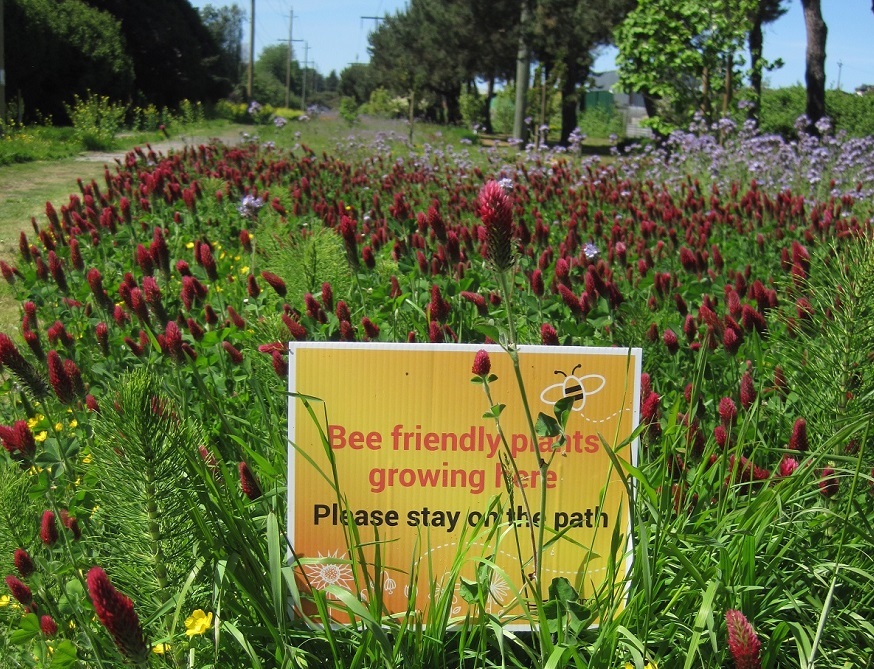News
Border Free Bees Build a Buzz in BC's Capital

Posted on February 20, 2018 | Updated August 06, 2019, 9:06am
Urban Alive Pop-Up Native Bee Apiary becomes one of the first three projects to be selected for Victoria's Participatory Budgeting Project.
The votes have been tallied for the City of Victoria's recent Participatory Budgeting Project, and Emily Carr University is represented in the outcome.
The Participatory Budgeting Project had three steps. First, individuals submitted their proposals for thoughtful, implementable community-based projects. From there, the proposals were narrowed down to eight finalists, and of those, the public voted for the top three projects they would like to see become a reality in their city.
Among the three chosen projects is the educational and innovative Urban Alive Pop-Up Native Bee Apiary championed by Pollinator Partnership Canada, Border Free Bees and Emily Carr University of Art + Design.
The Urban Alive Pop-Up Native Bee Apiary is the sixth public pasture project of Border Free Bees, a long-term public art initiative headed by Dr. Cameron Cartiere, Associate Professor in the Faculty of Culture + Community at Emily Carr University of Art + Design and Nancy Holmes, Associate Professor in the Faculty of Creative and Critical Studies at The University of British Columbia, Okanagan.
The initiative’s mission is to raise awareness of the plight of wild pollinators, empower communities to actively engage in solutions for habitat loss and transform under-utilized urban sites into aesthetically pleasing and scientifically viable pollinator pastures.
The Urban Alive Pop-Up Native Bee Apiary will entail a portable ‘apiary’ installation designed by Border Free Bees and Emily Carr University of Art + Design. The apiary will be home to many types of tunnel nesting native bees and incorporate multiple bee home designs and materials in a captivating and appealing way. The apiary also will feature information on bees, pollination and food security.
Native bees are essential for food production and natural ecosystems, yet they are largely overlooked, and few people know of their importance or appreciate their diversity and beauty. The installation will be unique and welcoming; a portable design that can be brought to new locations each year.
A further intention of the Urban Alive Pop-Up Native Bee Apiary is to foster community participation in managing and monitoring the native bees. A public education day at the apiary will feature local experts and hands on activities. The installation will provide an educational place for children and adults, and the native bees will help to pollinate urban gardens. It will be a sanctuary in the city where all can connect with nature.
The Urban Alive Pop-Up Native Bee Apiary has been awarded $11,500 for its implementation. This fantastic fusion of art, design, science and environmentalism will serve Vancouver Island communities for years to come.
